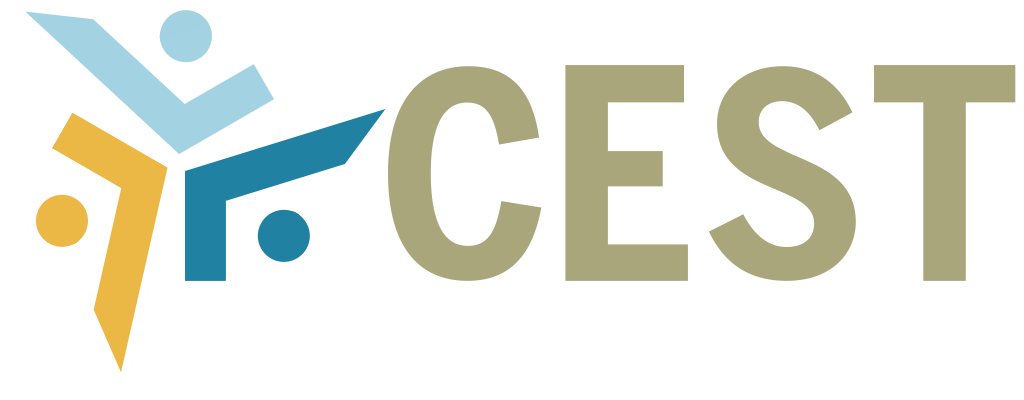– June 25, 2019 –
Mary Webb is Reader in Information Technology in Education at King’s College London, on the International Federation of Information processing (IFIP) Education Executive Committee and leads the IFIP Task Force on Computer Science in the Curriculum.
Mary is internationally recognised for her research on pedagogy and formative assessment across both Computer Science as a subject and the uses of new technologies for learning. Mary’s research has resulted in over 180 publications.
What should be considered as relevant issues to convince managers and policymakers of the importance of computational thinking in schools?
Computational thinking is a way of thinking about and solving problems that is used by computer scientists when developing computer systems. Computational thinking capability can be acquired by students as they learn computer science and used for tackling problems in many fields. As computers penetrate every area of human endeavour and have become crucial in all our lives, computational thinking is important for everyone in order to understand not only what computers are capable of, but also their limitations and how human expertise and computing can work effectively together. Therefore, computer scientists have called for computational thinking to be considered a basic capability to be learned by everyone alongside literacy and numeracy. The importance of computational thinking is one of the arguments for Computer Science being part of the curriculum for all students.

Can you give some samples of positive findings when integrating Computer Science across other school subjects?
The movement towards STEM Education in which the curriculum takes an interdisciplinary and applied approach across science and technology subjects is showing how students can become engaged with STEM subjects by working through a project-based approach in teams. For example in designing robots – see https://www.kcl.ac.uk/news/rise-of-the-robot-makers-2 students work together to solve problems using their knowledge learned in computer science, physics and engineering. So I think enabling students to engage with real problems and taking an interdisciplinary approach is really important. However, it is not about integrating computer science across other subjects; that approach was used in the past and failed. Rather, it is important for students to learn computer science as well as other subjects but also to have opportunities to apply their knowledge in interesting interdisciplinary challenges which often include project work in groups.
Teacher professional development in Computer Science is a challenge. What recommendations would you give to solve this issue?
Yes, teacher professional development in Computer Science is a challenge because, in many countries, there are not enough teachers with strong Computer Science knowledge. In the longer term, we need to aim to have enough Computer Science graduates going into teaching but that is challenging when there is a strong need for Computer Science graduates in industry and not enough people studying Computer Science. The problem needs to be addressed by multiple methods. Teachers should be encouraged to retrain by being given time and incentives and good resources need to be available for teachers to use in their teaching as well as to learn from. We should encourage networking by teachers so that they can share ideas and expertise because we are all still learning about the best ways of teaching Computer Science. There are also resources online from which students and teachers can learn and this learning together can be very effective. Enabling students to make use of the online courses can be a good solution but for most students online resources alone cannot substitute for a good teacher.
Are there any online resources and/or courses tailored-made to prepare teachers in Computer Science and its implementation in the curriculum?
Many good resources for learning/teaching Computer Science have been developed quite recently and more are becoming available. Many of these resources are available freely to teachers who can adapt them to the needs of their students. These include lots of good examples and apps as well as “CS unplugged” activities that enable people to learn Computer Science concepts without using computers. The following are useful links:
https://community.computingatschool.org.uk/resources/2616/single
https://teachinglondoncomputing.org/
https://csunplugged.org/
England has been particularly focused on professional development recently and there is currently a major well-funded initiative to train teachers which is developing online training materials. See: https://www.futurelearn.com/courses/teaching-computing-stem .
Since the meeting in Linz, Austria, in June 2018, what solutions have already been applied for the challenges identified?
Resources are being developed and improved and a web search now will locate a good range of resources including those mentioned above. Curriculum initiatives to develop the Computer Science curriculum are underway in various countries. Initiatives are also underway to communicate curriculum needs in relation to Computer Science and continue to develop our understanding. In particular, IFIP TC3 Website has been set up with our reports and papers and IFIP TC3 held a symposium in Paris in May on computational thinking: https://www.ifip-tc3.org/working-groups/task-force-curriculum/. Furthermore, in Europe, the “Informatics For All” coalition is working to promote Computer Science (Informatics) in schools: https://www.informaticsforall.org/. Also, EDUsummIT 2019 (https://edusummit2019.fse.ulaval.ca/ ) will include a thematic working group on “Machine learning in education”, that I am leading and we will consider in what ways the recent developments in machine learning need to be harnessed in relation to learning Computer Science in schools as well as learning/teaching more generally.
What are some good practices related to the use of students´ mobile phones for learning Computer Science?
Among teachers, and schools generally, opinions differ as to whether the use of mobile phones in classrooms should be embraced as a useful learning resource or banned as a distraction from learning. I think students need to learn how to use smartphones effectively for their learning and Computer Science lessons as well as many other lessons provide such opportunities for their use. For example, Internet-based research, student response systems, use of QR codes to access resources, giving feedback to teachers and sharing ideas with their peers through social media. More specifically, for learning computer science, there are a range of apps available for learning aspects of Computer Science including programming. However, I think learning to program is more easily done on larger screens, so unless smartphones are the only options available, I would not recommend their use for learning to program. If students have limited access to computers with larger screens, then much can be done on smartphones.
 English
English Português
Português
